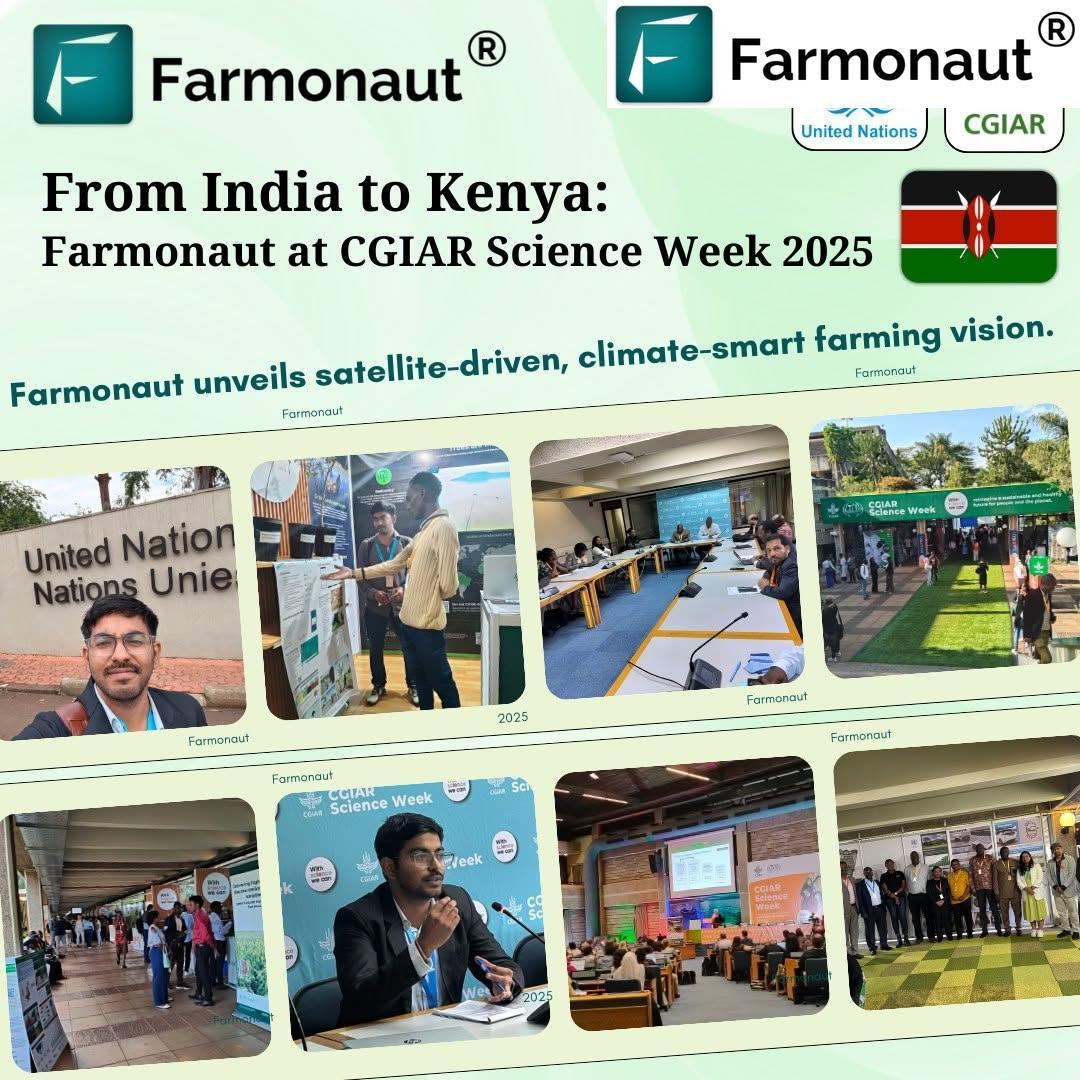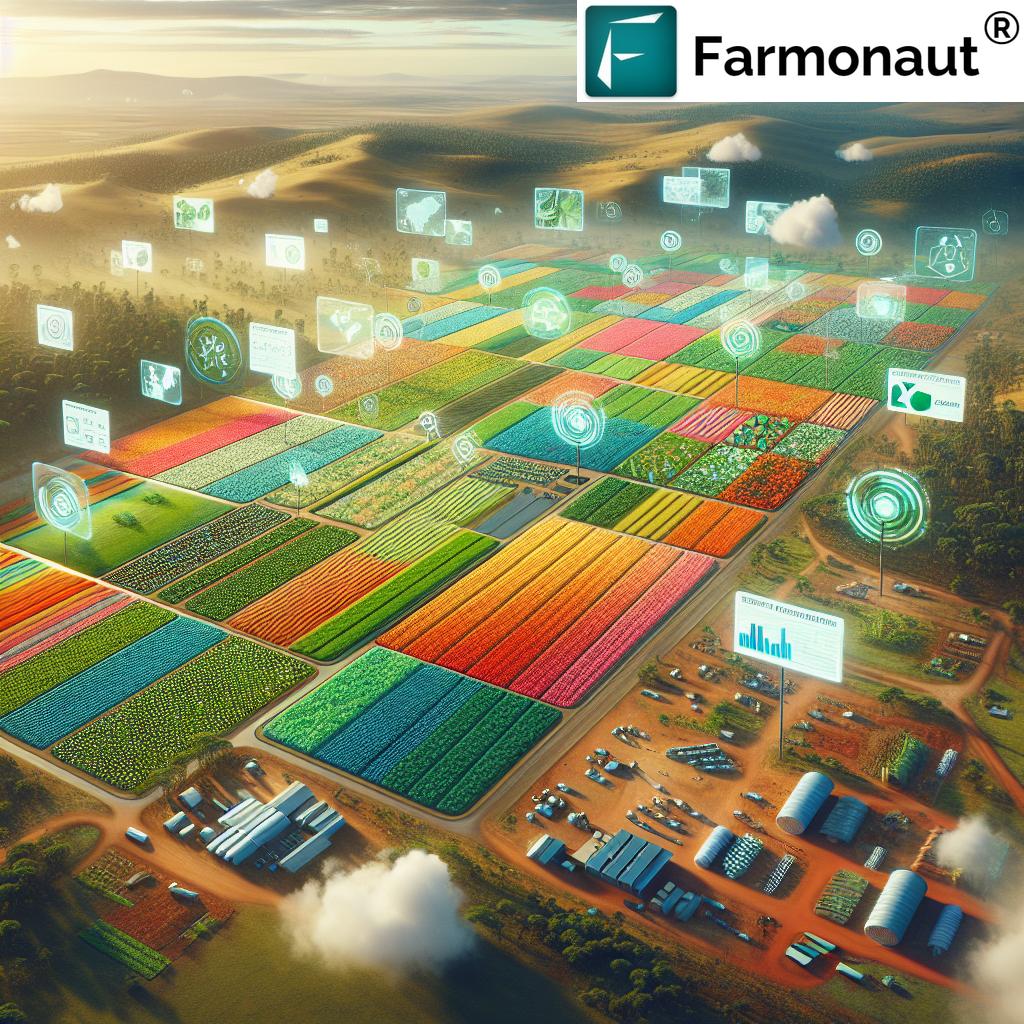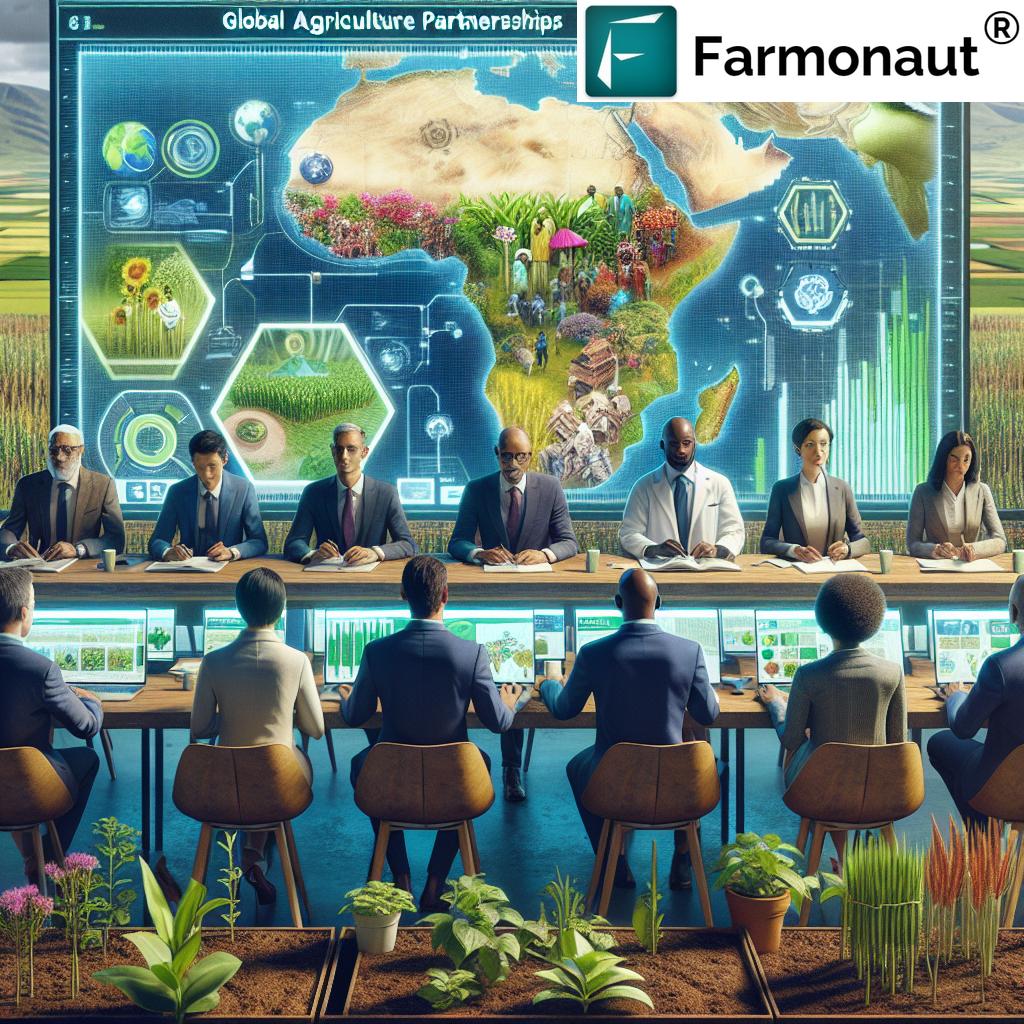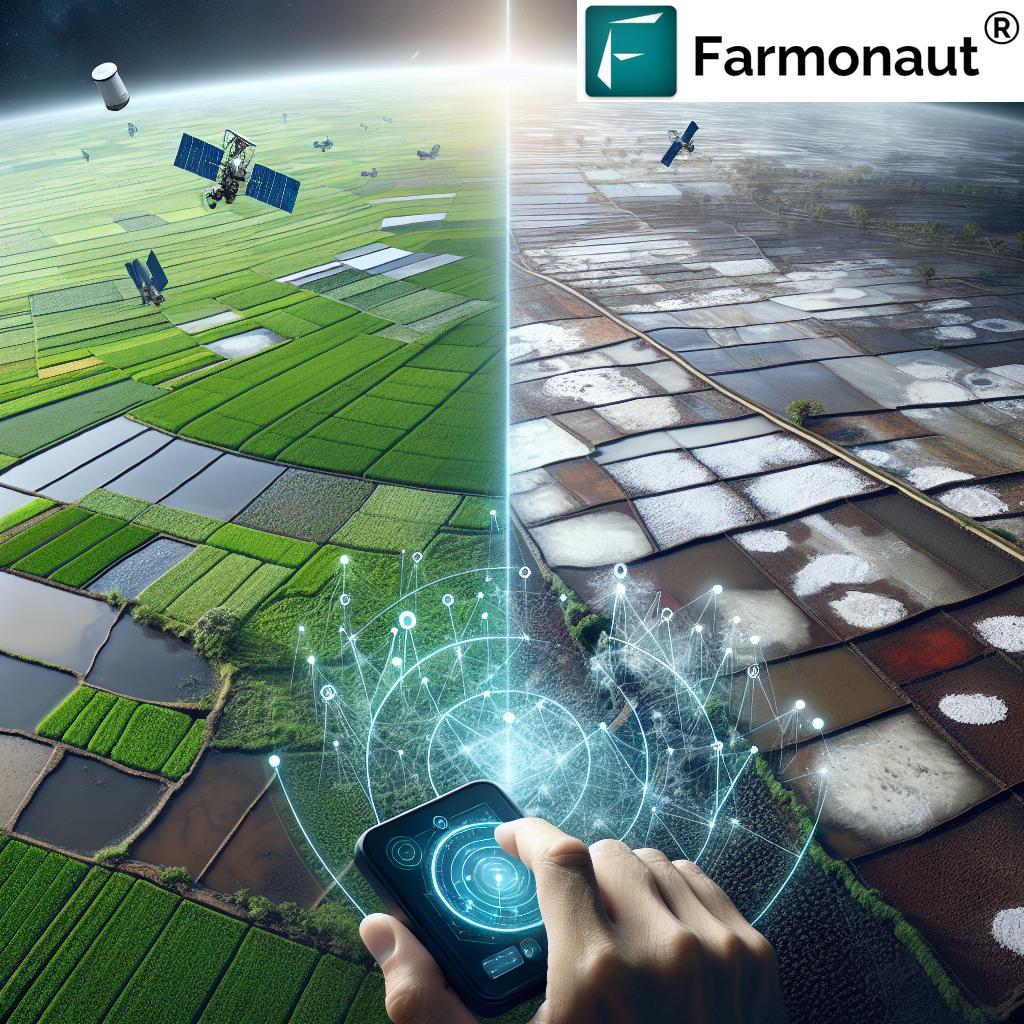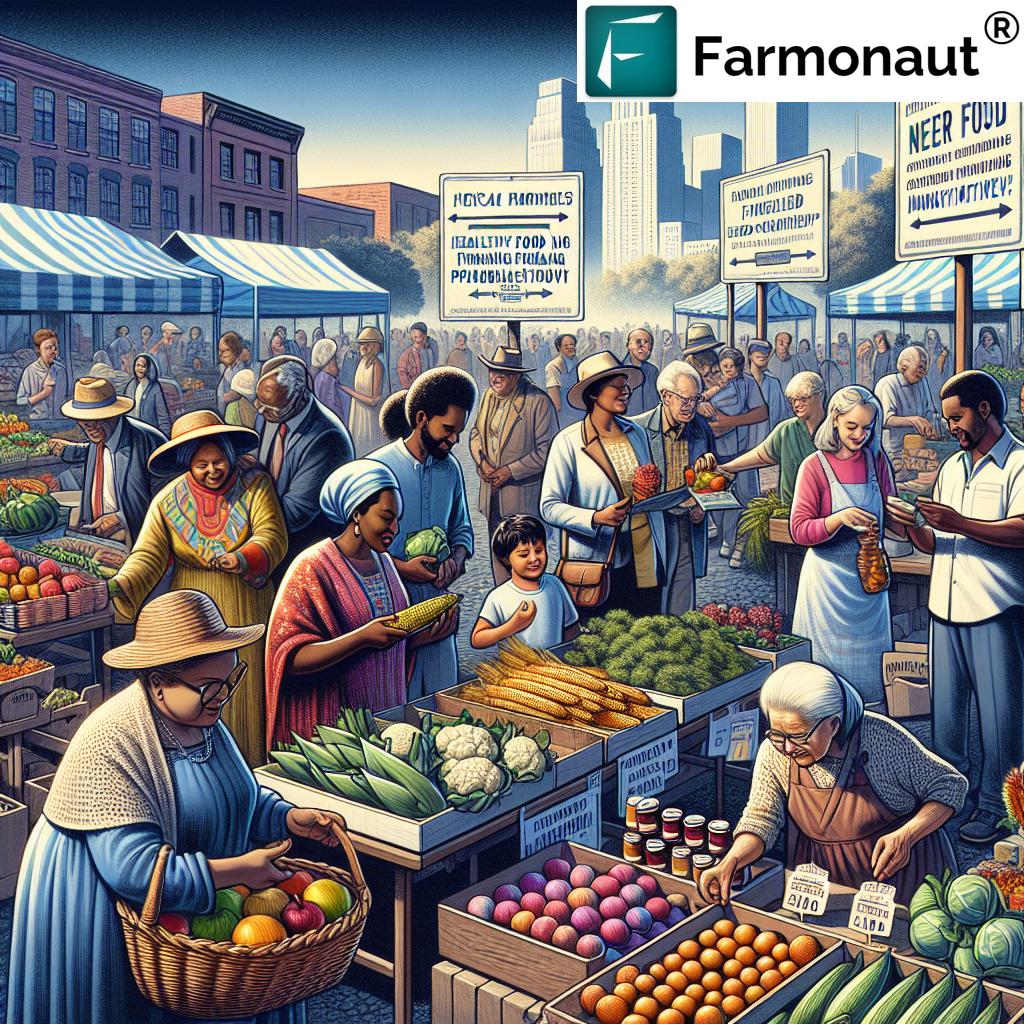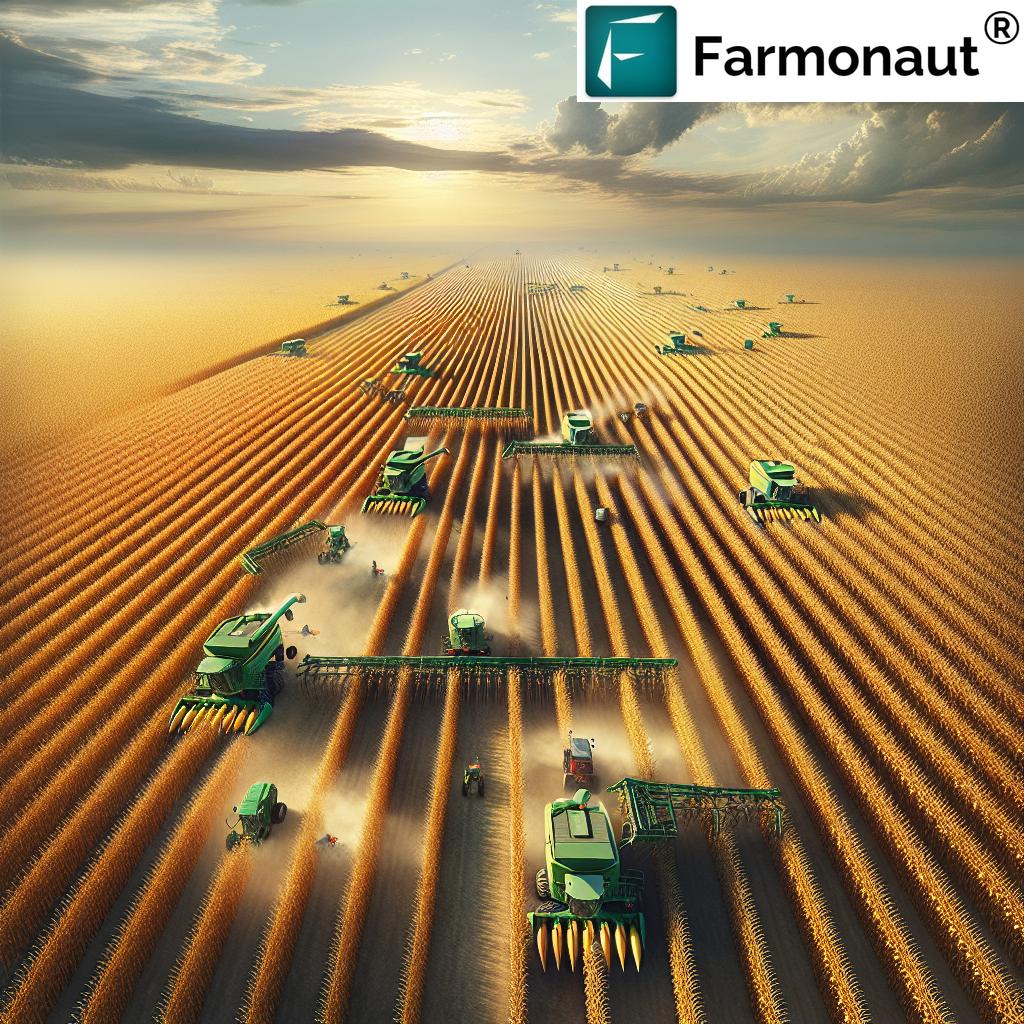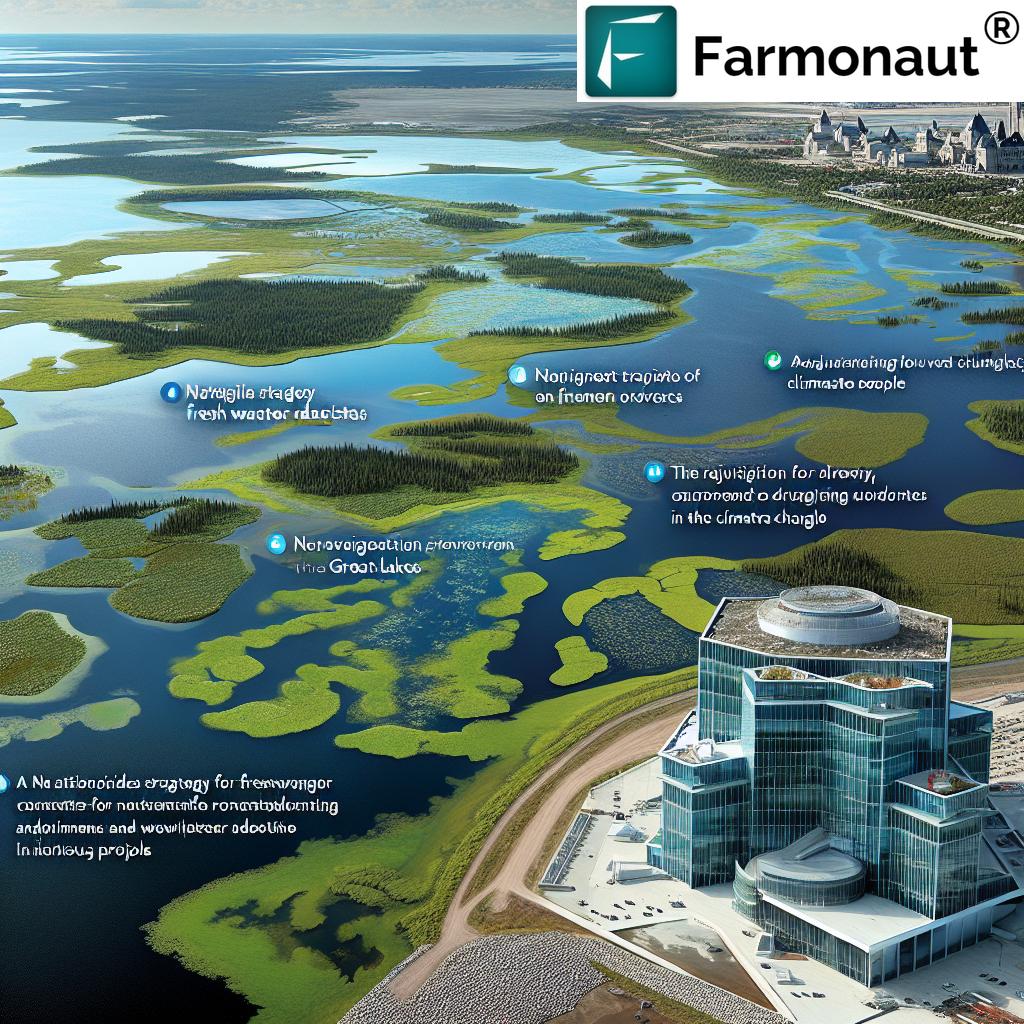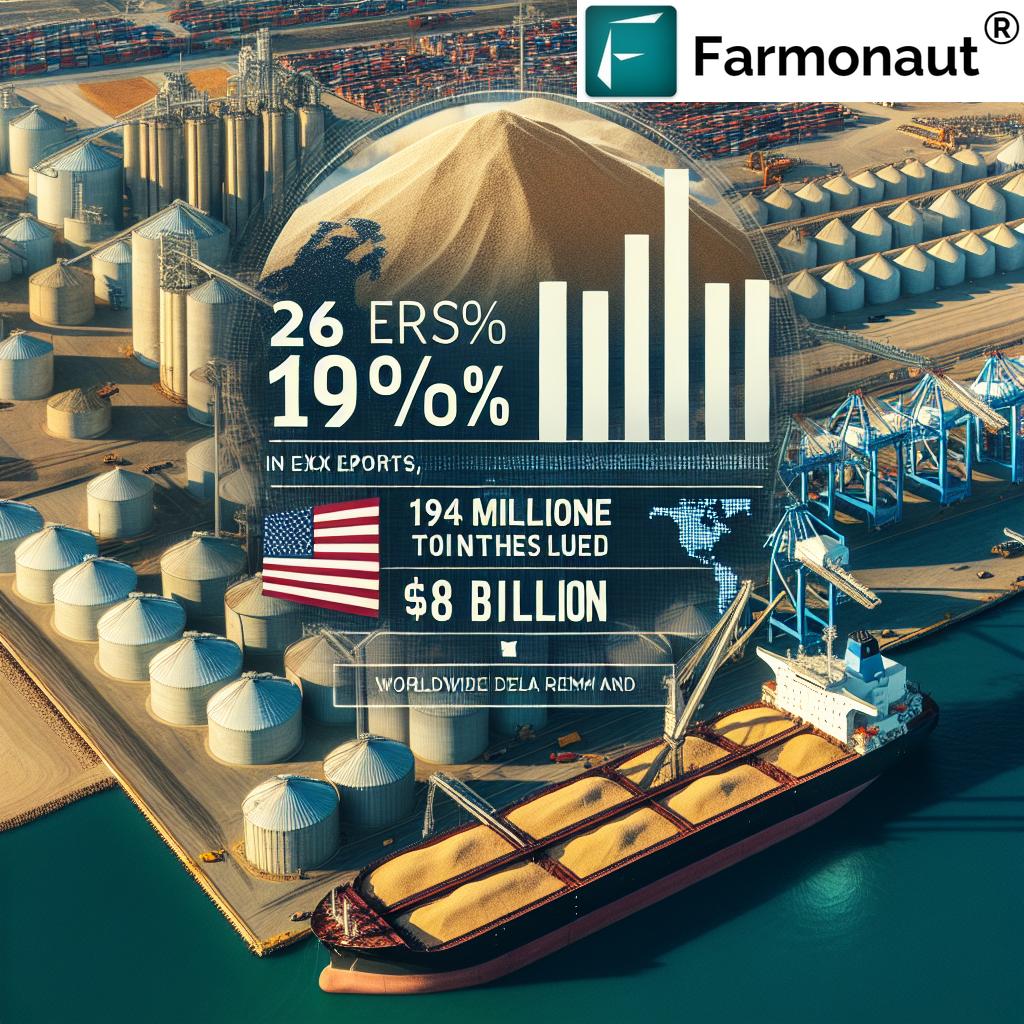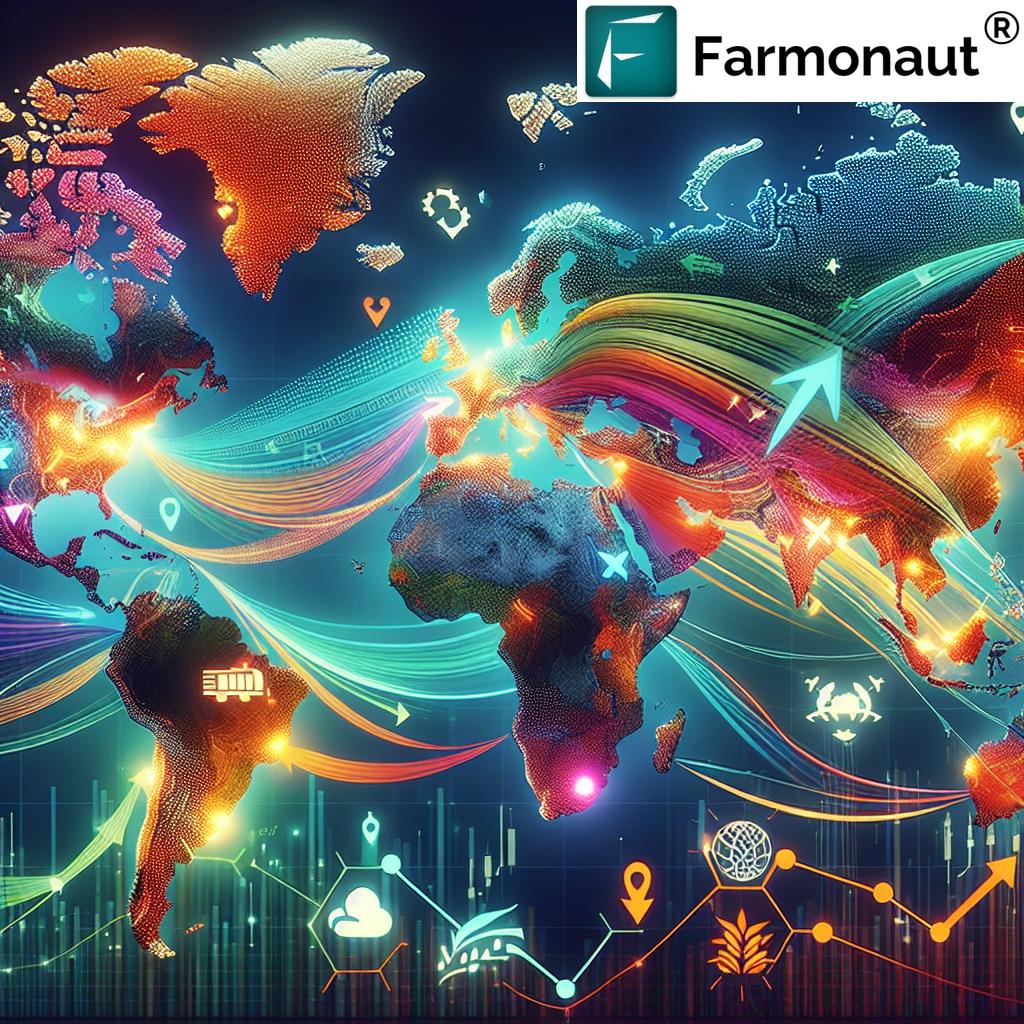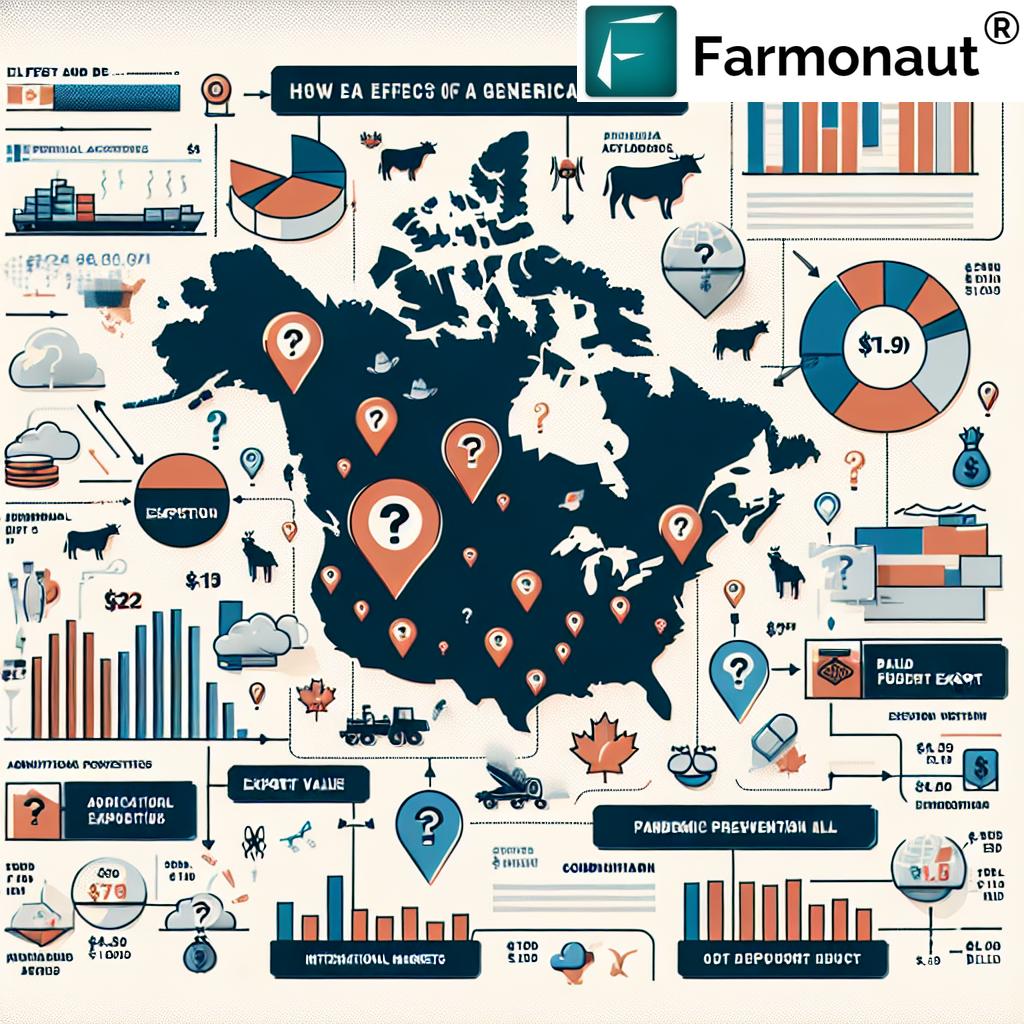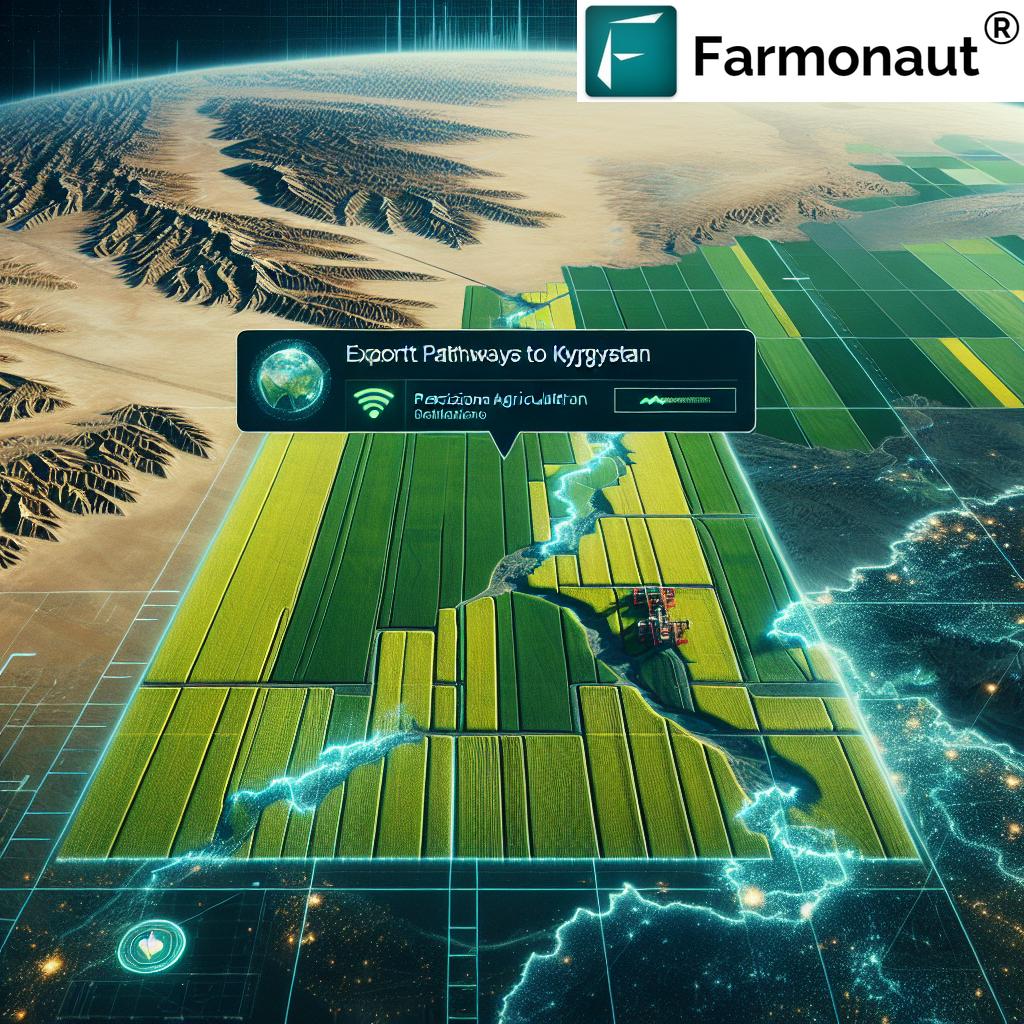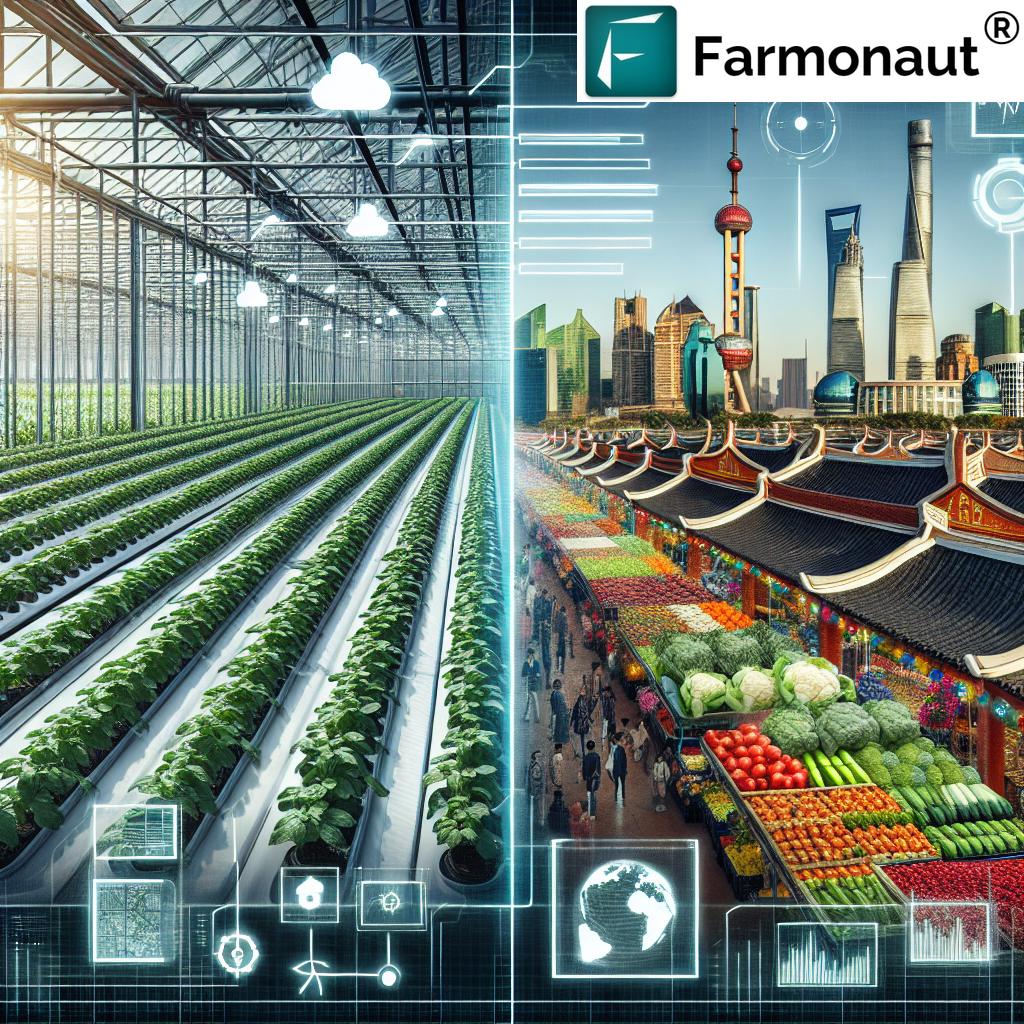Farmonaut Empowers Sustainable Agriculture at CGIAR Nairobi 2025
“Farmonaut showcased over 10 climate-smart agricultural solutions at CGIAR Science Week 2025, impacting 30+ countries globally.”
Table of Contents
- Introduction – Showcasing Innovation at UN Nairobi
- Farmonaut at CGIAR Science Week 2025: An Overview
- Advancing Climate Smart Agriculture: Farmonaut’s Role
- Satellite Farming Technology: Pioneering Smart & Sustainable Growth
- Driving Impact Across Diverse Ecological Zones
- Comparative Impact Table: Farmonaut Tech Vs Traditional Agriculture
- Our Platform’s Game-Changing Features
- Leveraging Real Data for Global Food Security
- Panel Sessions & Insights: Science Week Exchanges
- Empowering Farmers: Accessibility & Mobile Reach
- Farmonaut’s Scalable Business Model
- Farmonaut Subscription Plans
- Frequently Asked Questions (FAQ)
- Conclusion: Turning Global Agricultural Challenges into Opportunities
Introduction – Showcasing Innovation at UN Nairobi
At CGIAR Science Week 2025 in Nairobi, hosted at the prestigious United Nations campus, we at Farmonaut proudly presented our latest advances in climate smart agriculture and satellite farming technology. Our delegation, led by Mr. Vipul Baloda, seized this extraordinary platform to highlight how technology from the Global South—especially India to Kenya—can drive real transformation in agricultural landscapes worldwide.
The event was a gathering place for visionaries, researchers, and agritech leaders committed to shaping a sustainable and resilient future for food systems. As an innovator in global farm tech, Farmonaut remains deeply invested in developing affordable, scalable, and impactful sustainable agriculture solutions for diverse ecosystems.
Farmonaut at CGIAR Science Week 2025: An Overview
CGIAR Science Week 2025 united leading voices in global agriculture to explore new solutions for resilient food systems and sustainable farming. Our participation involved deep engagement in panel sessions, thematic discussions, and direct dialogues with global agtech stakeholders. The event illuminated how advanced satellite-based approaches can catalyze food security and climate adaptation from Nairobi’s ecological zones to other continents.
We showcased our robust solutions for: satellite-driven crop monitoring, AI-powered farm insights, blockchain-based traceability, and holistic resource management. Each technology was crafted to address pressing global agricultural challenges and opportunities discussed at the conference.
Our presence underscored the pivotal role of technology in democratizing access to climate smart agriculture and connecting India’s innovations to the African agricultural context.
“In 2025, Farmonaut’s technologies contributed to resilient food systems for more than 5 million farmers worldwide.”
Advancing Climate Smart Agriculture: Farmonaut’s Role at the United Nations Nairobi Agriculture Events
As sustainable agriculture solutions are urgently needed to address worsening climate shocks, Farmonaut’s comprehensive approach exemplifies climate smart agriculture in action. Our technologies directly align with UN food security priorities, supporting adaptation, mitigation, and increased productivity in changing environments.
- Climate Adaptation: By providing real-time satellite data and AI-based advisory, we help farmers adjust quickly to shifting rainfall patterns, droughts, and pest pressures.
- Carbon Footprinting: Our carbon footprinting tools empower agribusinesses to monitor and minimize greenhouse gas emissions across seasonal cycles.
- Resource Optimization: Farmonaut’s platform enables optimized irrigation and nutrient usage, reducing input waste while protecting water and soil resources.
- Traceability for Food Security: Through blockchain-powered product traceability, we ensure food is harvested, handled, and delivered safely – a vital step for food security global partnerships.
At CGIAR Science Week, we emphasized how satellite farming technology provides a vital feedback loop, allowing interventions based on up-to-date environmental conditions across diverse regions—from India to Kenya.
Satellite Farming Technology: Pioneering Smart & Sustainable Growth in Africa and Beyond
Our core mission at Farmonaut is to democratize precision agriculture using satellite farming technology. With CGIAR and UN Nairobi agriculture events as a backdrop, we shared how our solutions make advanced farm monitoring affordable for all—from individual farmers in remote ecological zones to multinational agribusinesses.
- Multispectral Satellite Imagery: Delivering timely NDVI (Normalized Difference Vegetation Index) and crop health indices to any farm globally, enabling interventions to safeguard yields.
- Jeevn AI Advisory: Integrating satellite and environmental data with tailored crop recommendations. Farmers receive advice via apps or automated platforms, all digitally delivered.
- Blockchain Traceability: Enabling secure documentation for agricultural products using blockchain, which increases transparency and builds consumer trust—a core need highlighted at the CGIAR Science Week panel sessions.
- Fleet Management & Logistics: Agribusinesses gain robust tools to optimize agricultural machinery, with tracking and analytics reducing costs and improving operational throughput.
- Crop Loan & Insurance Support: Financial institutions access satellite-based verification for loans and insurance claims, making agricultural credit more accessible and reliable.
With agtech innovations in Africa as a key theme, delegates expressed enthusiasm about how our technology bridges continental gaps and fosters rapid adoption—from India to Kenya and beyond.
Developers, researchers, and organizations can also access our precision satellite data and integrate it into third-party systems via our robust Farmonaut API. See the API Developer Docs for details on integrating satellite crop health, weather, and traceability insights into any farming or agri-research application.
Driving Impact Across Diverse Ecological Zones: Ecological Zones Farming with Farmonaut
Nairobi’s unique role as a gateway to Africa’s rich ecological tapestry was a key focus at CGIAR Science Week 2025. Farmonaut’s technologies are uniquely positioned to handle the complexity of ecological zones farming—from arid plains and highland plateaus to humid tropics.
- Precision Monitoring Across Continents: Our platform empowers users to select fields anywhere in the world and monitor crop development, moisture, disease risk, and yield prognosis, whether in the maize belts of Kenya or the pulse-producing zones of central India.
- Resource Savings: Data-driven irrigation and fertilizer usage protect fragile soils, especially in zones suffering from declining rainfall or overexploitation.
- Rapid Detection & Adaptation: Early detection of crop stress, pest outbreaks, and nutrient deficiencies can be the deciding factor in ensuring yield stability and reducing food loss.
- Scalability: With modular and accessible digital entry points, our solutions scale from smallholder farmers to nationwide programs for governments or agri-business groups. This scalability is vital for building resilient food systems at all levels.
As climate events become more erratic, Farmonaut supports proactive adaptation, empowering farmers across every ecological region addressed during the United Nations Nairobi dialogues.
Comparative Impact Table: Farmonaut Tech vs. Traditional Practices
Below is a comparative analysis of Farmonaut’s sustainable agricultural solutions as presented at CGIAR Nairobi 2025, versus conventional agricultural practices. This table underscores our impact in enabling climate smart agriculture, supporting food security, and enhancing ecological sustainability globally.
| Solution/Practice | Environmental Impact (CO₂ reduction tons/year) | Water Usage (liters/hectare) | Yield Improvement (%) | Scalability (users/regions impacted) |
|---|---|---|---|---|
| Farmonaut Satellite Crop Monitoring | 5–12 (Estimated) | 3,800–5,200 (20–30% reduction) |
10–18% (per season) | Global/30+ countries (5M+ users) |
| Traditional Visual Monitoring | 1–3 (Estimated) | 5,000–7,500 | 0–5% | Local/Variable |
| Farmonaut AI Advisory (Jeevn) | 6–15 | 3,500–4,800 | 12–22% | Multi-region/Scalable (digital reach) |
| Expert On-field Agronomy (Traditional) | 2–4 | 4,800–7,000 | 3–8% | Resource-limited (high cost per visit) |
| Farmonaut Carbon Footprinting | 8–26 (tracked & managed) |
4,000–5,000 | 10–15% | Global/Multinational enterprises |
| Traditional Self-reporting/Manual | 1–6 (inaccurate) | 5,500–8,000 | 0–5% | Local/Subjective |
| Farmonaut Blockchain Traceability | 7–13 | — | Improves supply chain efficiency | Global/Corporate supply chains |
| Traditional Record-keeping | 2–8 | — | Limited impact | Local/Not scalable |
(All values are estimates, demonstrating comparative benefits for CGIAR Science Week 2025.)
Our Platform’s Game-Changing Features: From Satellite to Sustainable Growth
Our technology suite, as presented at CGIAR Nairobi 2025, is designed to deliver high-impact, data-driven solutions accessible to all stakeholders:
- Multi-Platform Access: Android, iOS, and web applications make advanced farm tech available to farmers, agronomists, and agri-researchers—anytime, anywhere.
- Real-Time Crop Health Monitoring: Using multispectral imagery, users receive NDVI, Soil Moisture, and stress maps for actionable field-level insights.
- AI-Based Farm Advisory: Our Jeevn system processes thousands of data points to produce hyper-local fertilizer, irrigation, and crop protection advice.
- Product Traceability: With our blockchain traceability solution, every farm product can be reliably tracked from seed to store.
- Carbon Footprint Tracking: Enhance sustainability initiatives and meet compliance requirements by monitoring and minimizing on-farm emissions.
- Fleet & Resource Management: Agribusinesses benefit from logistic analytics and optimization tools for cost and resource efficiency.
- Support for Crop Loans & Insurance: Banks and insurance providers leverage our data for faster, risk-averse service delivery via Farmonaut’s verification tools.
- Large-Scale Farm Management: Coordinators for l multiple plantations benefit from admin tools for collective management, assessment, and reporting.
- Crop Plantation & Forest Advisory: Decision-makers can use our digital advisory tools to plan afforestation or large crop installations using satellite and AI insights.
This comprehensive feature set uniquely positions Farmonaut at the forefront of global agriculture innovation—bringing future-ready technology to the present-day field.
Leveraging Real Data for Food Security Global Partnerships
In the context of CGIAR Science Week 2025 and global agricultural challenges and opportunities, our mission is to use verifiable data to support food security—not just for today, but for future generations.
- Crop Loss Reduction: Timely interventions driven by Farmonaut’s alerts prevent pest damage and climate-induced crop failures, directly supporting food security.
- Yield Optimization: AI-driven optimization raises output per hectare while ensuring input efficiency—a strategic requirement shared during many Nairobi panel sessions.
- Supply Chain Integrity: Our blockchain ensures that food reaching consumers is traceable, fresh, and ethically produced—key pillars of food security global partnerships.
- Fostering Transparency: Each stakeholder, from farmer to retailer, can independently verify crop status and journey, reducing uncertainty and supporting fair trade.
Panel Sessions & Insights: Science Week 2025 Exchanges
CGIAR Science Week featured numerous discussions on scaling agtech:
- Technology from the Global South: Delegates eagerly explored “india to Kenya” innovations, using them as templates for emerging markets.
- Policy & Practice Harmonization: Experts examined how satellite data and machine learning could harmonize with local wisdom and ecological realities.
- Enabling New Partnerships: Access to robust, transparent data was highlighted as a critical enabler for effective food security strategies.
- Panel Sessions: Focused on climate resilience, sustainable growth, and digital inclusion, with Farmonaut’s platform recognized for bridging data divides.
Our sessions contributed to:
- Advancing the utility of satellite farming technology in global food security.
- Demonstrating how digital agriculture solutions turn challenges into opportunities for sustainable growth.
Empowering Farmers: Accessibility & Mobile Reach Across Continents
Central to our approach at Farmonaut is the belief that innovation must be both scalable and inclusive.
- Direct-to-Farmer Access: Any farmer—whether in rural Kenya, urban India, or beyond—can download our Android or iOS applications and activate real-time crop insights.
- Web & Browser Support: Farm owners, agribusinesses, and NGOs can access our solutions via desktop for easier workflow integration.
- Language & Usability: Built for accessibility, our platform leverages intuitive visuals and regional language support wherever possible.
- API Ecosystem: Large organizations and developers use our API to expand reach and incorporate satellite farming technology into custom apps and agri-systems.
This user-first approach, highlighted during CGIAR discussions, illustrates why digital adoption is accelerating across global resilient food systems.
Farmonaut’s Scalable Business Model for Global Impact
As explored at CGIAR Nairobi 2025 and in alignment with Sustainable Development Goals:
- Subscription Packages: Choose tailored plans for individual fields, large cooperatives, government programs, or research organizations based on field area and data update frequency.
- Platform Versatility: Our web/mobile apps and API access allow users to track, analyze, and report from any device globally.
- API Expansion: Licensing our robust API extends Farmonaut’s datasets to developers, institutions, and agri-enterprises—multiplying downstream impact.
-
Support for Financial Services: Crop loans and insurance companies can easily validate acreage and claims using our data-backed verification, reducing fraud and accelerating access to critical services.
Learn more here.
Every aspect of our business model is designed to break barriers to precision agriculture, ensuring global agriculture is fairer, more productive, and future-proof.
Farmonaut Subscription Plans
Choose a package tailored for your needs—whether you are a smallholder seeking actionable crop insights, a large enterprise managing thousands of hectares, or an institutional user requiring API integration.
Our pricing is structured to empower farmers and organizations globally without the high hardware investment typical of traditional precision farming tools.
Frequently Asked Questions (FAQ): Farmonaut at CGIAR Science Week 2025
1. What makes Farmonaut’s satellite farming technology unique for global agriculture?
Our technology harnesses advanced satellite imagery, AI, machine learning, and blockchain to deliver actionable, real-time insights. This approach means no high hardware costs for users, making climate smart agriculture accessible and affordable globally.
2. How did Farmonaut contribute to CGIAR Science Week 2025 in Nairobi?
At CGIAR Science Week, held at the United Nations campus in Nairobi, we presented over 10 climate-smart agricultural solutions that address global challenges in crop monitoring, resource optimization, and supply chain traceability. Our panel sessions and interactions emphasized how tech from the Global South, especially the “India to Kenya” model, can spark sustainable agricultural growth.
3. How does Farmonaut support food security in diverse ecological zones?
Our platform supports ecological zones farming by allowing hyper-localized monitoring and management. This ensures early stress detection, optimal resource utilization, and improved resilience in the face of climate events across Africa, India, and beyond.
4. Is Farmonaut suitable for smallholder farmers as well as large agribusinesses?
Yes! Farmonaut offers flexible subscription models and app access that suit individual smallholders, large-scale plantation managers, and even government-led crop programs.
5. Can researchers and institutions integrate Farmonaut’s solutions into their existing systems?
Absolutely! Institutions and developers can benefit from our API interface to access real-time satellite data for custom integrations.
6. Are Farmonaut’s solutions limited to India and Kenya?
No, Farmonaut’s services are global, covering over 30 countries and supporting millions of hectares in multiple continents, thanks to the universality of satellite monitoring.
7. How does carbon footprint tracking work on the Farmonaut platform?
Our carbon footprinting solution uses remote sensing and AI to help agribusinesses estimate, monitor, and reduce greenhouse gas emissions in compliance with international standards.
8. What is the value proposition for banks and insurers?
By using Farmonaut’s satellite-based verification tools, financial institutions reduce risk, speed up application processes, and minimize fraud—making crop loans and insurance fairer for all parties.
9. How does product traceability increase consumer trust?
Our blockchain-powered traceability system documents every stage from farm to table, boosting transparency and building trust within both local and export food systems.
10. How do I get started with Farmonaut?
Download our app for Android or iOS, or use our web version (register here), to unlock a full suite of precision agriculture tools. Developer? Integrate with our robust API!
Conclusion: Turning Global Agricultural Challenges into Opportunities
Our journey at CGIAR Science Week 2025, on the global stage of UN Nairobi agriculture events, reaffirms Farmonaut’s commitment to sustainable, climate smart agriculture and the development of resilient food systems. Through satellite farming technology, AI-driven advisories, and blockchain traceability, we empower farmers, agribusinesses, and governments from India to Kenya and beyond.
The world’s agricultural future is one of adaptation—where challenges can be transformed into opportunities for sustainable growth, equity, and food security. We are honored and invigorated to help lead this transformation.
Together, we can build a food-secure, sustainable, and climate-resilient tomorrow.


